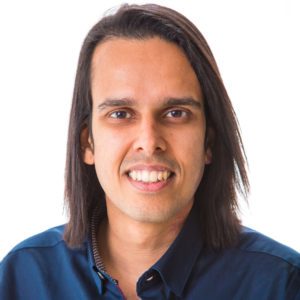How to overcome anxiety is a question that is increasingly being asked. And, its prevalence tells us a lot about life in modernity. About how the many pressures of our competitive, urban environments can cause inner tension and worry within us. Luckily, we have choice in the matter.
What is anxiety?
While anxiety may create physical symptoms, it is fundamentally a psychological state. A state of mental tension and unease that is the opposite of feeling calm and clear within yourself. And, often we compound the situation by being anxious about anxiety — and being anxious about being-anxious-about-anxiety, and so on ad infinitum.
Our worry and panic can become so great that we might even forget the very source of anxiety. How did it begin in the first place — what exactly are you feeling anxious about? And, it may sometimes not be easy to put your finger on this, especially when things become tangled up. For example, tension and worry that started with work related stress may seep into feeling anxious in public places, for example when taking the train, which was never a problem in the past.
How to overcome anxiety must involve seeing its root
In asking how to overcome anxiety, we must first ask what the root of anxiety is. While anxiety can have many faces, its deeper root is always fear. And, I really do mean always — this is axiomatic. Fear that something, whatever it is, is not going to work out. Fear that is felt at a visceral level and triggered more in certain situations than others.
The general feeling of being anxious from time to time is a gift from mother nature. As such, it is part of being human. Like our other feelings and emotions, anxiety can be important feedback that can move us to action. What we are talking about, then, is not the butterflies in your stomach before a first date. Rather, it is the chronic anxiety that we find in modernity, where we trap ourselves in a never-ending vortex of being anxious about anxiety. The chronic state of constant fear that we might live in.
There are various coping mechanisms for dealing with anxiety, from listening to music and gardening, to breathing mediation or jogging. Different things work for different people. What I want to look at here however is the deeper root of fear behind anxiety, so that we may move beyond simply coping. This investigation is about plumbing the existential depths of what might underlie anxiety, whatever face it may take in your life.
Control and self-doubt
There is a kind of existential self-doubt that characterises much of modern life. Doubt that manifests itself in our search for more and more control and certainty in all areas of life. Paradoxically, the more control we find through our material and technological progress, the more out of control we seem to feel. The more we try to measure and control life, the more inner tension we seem to generate. Just like a cocaine addict that needs higher and higher doses with every hit.
Our complex minds have given us the ability to plan and to manipulate our environments like no other animal can. Yet, within this gift also lies a great danger. We can end up planning and planning, and seeking and seeking, but never finding. We can desire so much control in our lives that we end-up paralysed with chronic anxiety. For, the kind of absolute control that the modern mind seeks can never be found in a world of inherent complexity and uncertainty.
The modern mind that obsesses over controlling its environment runs into severe difficulties when it seeks to apply this same control on itself. When it (your mind) tries to make you be something other than what you already are. And, such striving betrays something — doubt that who you are is somehow not enough, such that you ought to be changed.
So, the mind is swept-up in anxiety as it wills itself to be something different to what it currently is. That is why I call it existential self-doubt. Because the anxiety is really fear born out of doubt about the inherent validity of one’s very existence and being! Fear that you need to be something more than what you already are.
How to overcome anxiety starts with unravelling the knot
How to overcome anxiety begins with seeing how you often stand in your own way. With seeing that by becoming anxious about anxiety, you create a feedback loop that keeps growing. And, this applies not just to anxiety. We can also become sad about sadness, for example!
So, by simply allowing yourself to be okay with your anxiety, you begin to unravel the knot. By not trying to change your feelings of anxiety and simply accepting them, you reduce their hold over you. And things can now begin to reverse — you are no longer anxious about being anxious about being anxious, and so on. And, whatever residual anxiety that remains is free to arise and free to pass. Remember, there is no such things as completely removing anxiety forever. That would be both superhuman and silly!
Pure experience
We could say that acceptance is a form of abiding in the pure experience of the present rather than anxiously looking ahead. Fully recognising and allowing the inherent wonder of each moment, whatever the feeling (happiness, sadness, anxiety, pleasure, pain) involved may be. Such recognition unravels self-doubt because we realise that there is nothing to prove and nowhere to go. Because we start to see that however much we strive, it is only to reach a future whose experience is, in essence, really no different to the present. So, why not welcome the infinite wonder of the experience that is readily available to you now?
Even the whole idea of improving or changing yourself is in a sense meaningless. Why? Because this idea is based on a peculiar separation between the YOU that is seeking the change, and the YOU that is being changed. It is a kind of paradox that can only be resolved by recognising that there is nothing more to achieve beyond pure everyday experience. Everyday experience that does not need any description or narrative, any external validation or achievement. Experience that unifies the YOU that is doing the changing and the YOU that is supposedly being changed. Experience that is there all the time everywhere, whether you are awake to it or not.
Feeling of separateness
But, we may need to go still further, if we are really serious about answering the question of how to overcome anxiety. We must become awake to how in seeking so much control in modernity, we have alienated ourselves from the entire realm of nature. How, drunk on the power of being able to manipulate nature, we have come to view ourselves as separate from it, rather than as an expression of it. Is it really surprising that he who battles against a world that he feels separate from is going to feel anxious?
There is then a fundamental flaw at the core of this —an often hidden, non-conscious belief. A belief about a duality that does not really exist. In the same way that the split between different sides of you is an illusion, the split between subject and object is an epistemological illusion. In the way that we cannot have up without down and in without out, we cannot have self without other. You, as your physical self, can exist only in relation to the outside world. So, they are in reality mutually arising — one cannot happen without the other. Can we then say that they are really two separate things?
Everyday experience is how to overcome anxiety!
This brings us back to everyday experience. For, if there is no essential separation between this and that, self and other, all there is left to do is to experience the great unfolding. The unfolding of life that we will each experience in our own unique way, according to our own nature. And, in allowing such experience comes great liberation. Liberation that frees you from the anxiety of needing to prove yourself. That frees you from the anxiety of needing to be different to who you already are.
As the legendary Taoist sage, Chuang Tzu noted:
“Everything is something, and is good for something. There is nothing which is not something or is not good for something. Thus, it is that there are roof-slats and pillars, ugliness and beauty, the peculiar and the extraordinary… []…To make a distinction is to make some construction. But construction is the same as destruction. For things as a whole there is neither construction no destruction, but they turn to unity and become one. Only the truly intelligent know the unity of things. They therefore do not make distinctions, but follow the common and the ordinary. The common and the ordinary are the natural functions of all things, which express the common nature of the whole. Following the common nature of the whole, they are happy.”
_____________________________________________________________________________________________




Recent Comments